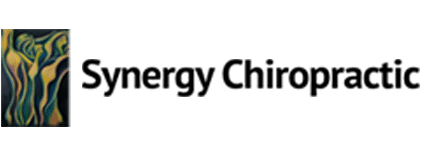Chiropractic Care in Tucson AZ

In Tucson we provide advanced spinal correction utilizing “state of the art” chiropractic techniques. Never in the history of chiropractic have we been able to provide the level of help and expertise that now exists. These newer correction methods are even safer, more comfortable and more effective than ever before. As a Doctor of Chiropractic, Dr. Cynthia Gerszewski has 17 years of training and experience in gentle spinal adjustment.
We offer low force and non force chiropractic care with an emphasis on NetworkSpinal Analysis, Flow, Torque Release, The Blye Cranial Technique, and Toggle. Influences of Logan, Blair, Toffness, gentle Diversified, DNFT, and other techniques are incorporated.
Network Spinal Analysis is the foundation of Dr. Cindy’s technique style. It involves gentle precise touches to the spine that cue the brain to create new wellness promoting strategies. This technique results in spontaneous release of spinal and life tensions, and the use of existing tension as fuel for spinal re-organization and enhanced wellness.
Dr. Cindy combines clinical assessments of spinal refinements with self assessments of wellness and life changes.Greater self-awareness and conscious awakening of the relationships between the body, mind, emotion, and expression of the human spirit are realized through this popular gentle healing work.
FAQ on Health & Wellness Benefits
Q: How does one evaluate health?
A: There are two distinct models Biomedical model Holistic or Wellness model The Biomedical model considers the symptoms of a person and their laboratory test results to assess their condition or disease. The Holistic wellness model considers the person, their extent of function, their perceptions, and their overall quality of life.
Q: Have health professionals studied their patients to demonstrate the changes across both models of health?
A: Some studies have been done in various professions. Members of the Association for Network Chiropractic have participated in a study conducted by researchers within the University of California, Irvine, College of Medicine. One objective of this study was to develop a patient reported questionnaire to evaluate health and well being through a wide range of Biomedical and Wellness indicators incorporating both models. This survey bridges the Biomedical and Wellness assessments. The study evaluated a population of over 2800 patients in the U.S. and abroad under Network Care. It represents the largest study to date assessing the health and wellness benefits of a specific form of chiropractic care. Seventy-six percent (76%) of the patients studied reported improved combined wellness changes in all categories assessed.
Q: What is Network Care?
A: Network Care utilizes NetworkSpinal Analysis (NSA). NSA is a system of assessing and contributing to spinal and neural integrity, as well as health and wellness. Practitioners employ gentle force applications to the spine to assist the body to eliminate mechanical tension in the neurological system. The body naturally develops strategies for dissipation of stored tension/energy, thus enhancing self-regulation of tension and spinal interference.
Q: What trends were seen in patients receiving this form of care?
A: An increasing percentage of patients reported progressively greater improvements in the areas assessed, as a function of duration of care. That is, in the population studied, there was no “ceiling” to the results over time, for the health and wellness categories investigated. The benefits reported among patient respondents were evident from those under care as recent as 1-3 months, to those under care for as long as 3 plus years. These results have led the investigators to conclude that “within the boundaries of this study design, these findings provide substantial evidence that Network Care should be included among those practices with established health benefits.”
Wellness Benefits associated with Network Care and NSA
A self-reported retrospective characterization of 2818 patients under Network Care has been previously reported. The results of that study describe the Network Care recipients as predominantly female and similar in socioeconomic status, and higher educational characteristics to those seeking other forms of alternative health care (Eisenberg, as cited in Blanks, et al.). The Network Chiropractic recipients reported significant “retrospectively recalled” improvement in self-rated perceptions of health, and overall quality of life. The reported outcomes associated with Network Care reflects a large positive clinical effect in every health-related domain investigated. Moreover, Network Care is association with significant improvement in self-rated perceptions of “wellness,” which was positively correlated with length of time under care. This means that patients who had been under care the longest time reported greater perceived improvement in wellness.
Milestone: The retrospective characterization reflected an epidemiological study which could set a benchmark for future investigations in a number of disciplines relative to assessing health and wellness related outcomes among patients involved in holistic health care.
Milestone: While the findings of the retrospective study are significant, of equal importance is that the survey instrument designed for the study has present a means of non-medical assessment heretofore unavailable. The instrument has exhibited a high level of internal validity, and has currently been used in a study in New Zealand, and is expected to be used by two other U.S. chiropractic colleges for research/and or patient assessment.
Milestone: Bases on the outcomes revealed through the retrospective characterization of Network Care, Dr. Epstein, its developer, elected to reconfigure Network Care into the paradigm of NetworkSpinal Analysis (NSA).
A year long longitudinal study of NSA has just been completed. This study was undertaken to test the validity of findings in the retrospective study, as well as to evaluate the association between duration of care and related health benefits. While the data is still undergoing analysis, preliminary findings support the positive benefits retrospectively reported.
Proven Benefits of the NSA Techniques include:
- Reduced pain
- Improved spinal flexibility
- More energy less fatigue
- Fewer cold and flu symptoms
- Fewer headaches
- Better overall health and general well-being
- Better ability to cope with daily problems
- Improved family relationships
- Improvement in significant relationships
- Less distress about physical pain
- More positive feelings about self
- Decreased moodiness
- Improved temper
- Fewer angry outbursts
- Less depression and more interest in life
- Fewer concerns about-small- things
- Improved ability to concentrate
- Less anxiety
In addition to these categories, there was also a significant increase in health promoting practices and a decrease in health detracting practices.
Dr. Cindy’s 15 years of practice experience with low force and tonal adjusting has brought her to a place where she is constantly learning new perspectives on the body, and is focused on finding the most appropriate personalized adjustment to deliver to her patient. It is her experience that bringing the ART of chiropractic to each adjustment is the most important X- factor in whether or not a patient receives meaningful benefit. She is dedicated to creating a meaningful experience for each person she works in each visit.
Monday
10:00am - 6:00pm
Tuesday
10:00am - 6:00pm
Wednesday
10:00am - 6:00pm
Thursday
10:00am - 6:00pm
Friday
Closed
Saturday
Closed
Sunday
Closed
Synergy Chiropractic
5675 North Oracle Road #3203
Tucson, AZ 85704
(520) 293-6060


